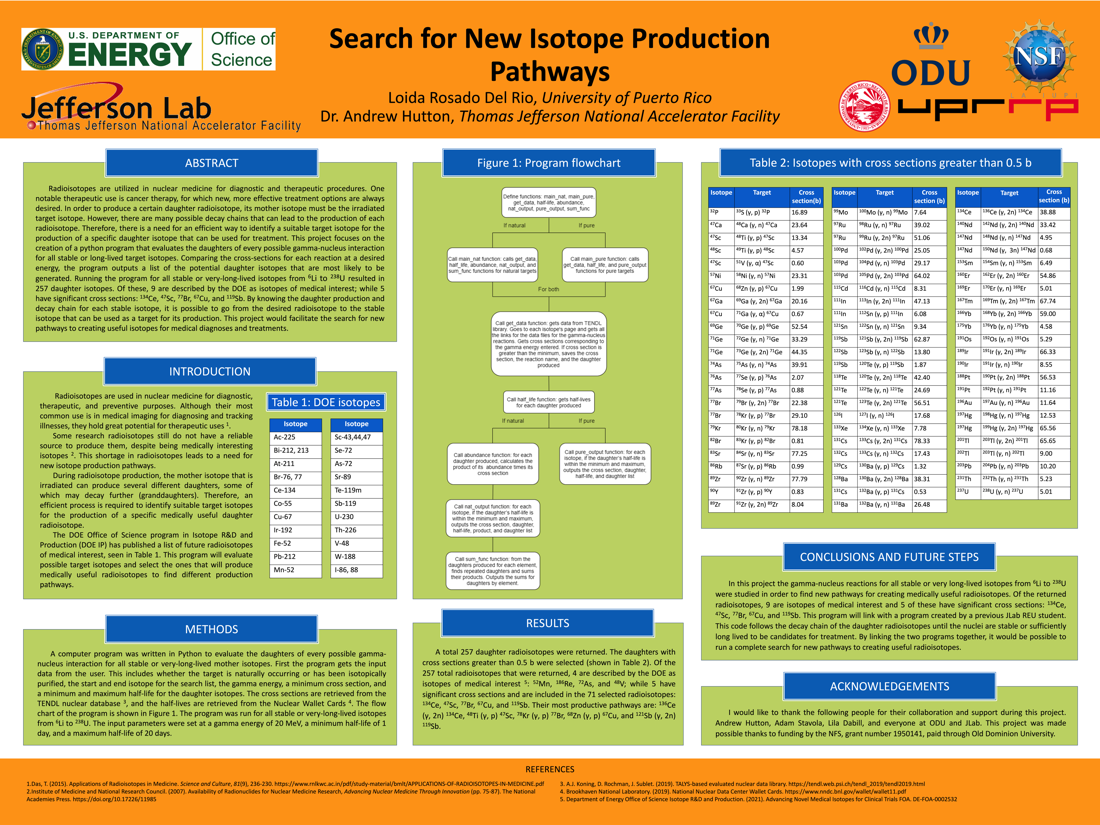Undergraduate Research at Jefferson Lab
Search for New Isotope Production Pathways
Student: Loida Rosado del Río
School: University of Puerto Rico, Rio Pedras Campus
Mentored By: Dr. Andrew Hutton
Radioisotopes are utilized in nuclear medicine for diagnostic and therapeutic procedures. One notable therapeutic use is cancer therapy, for which new, more effective treatment options are always desired. In order to produce a certain daughter radioisotope, its mother isotope must be the irradiated target isotope. However, there are many possible decay chains that can lead to the production of each radioisotope. Therefore, there is a need for an efficient way to identify a suitable target isotope for the production of a specific daughter isotope that can be used for treatment. This project focuses on the creation of a python program that evaluates the daughters of every possible gamma-nucleus interaction for all stable or long-lived target isotopes. Comparing the cross-sections for each reaction at a desired energy, the program outputs a list of the potential daughter isotopes that are most likely to be generated. Running the program for all stable or very-long-lived isotopes from Li-06 to U-238 resulted in 257 daughter isotopes. Of these, 8 are described by the DOE as isotopes of medical interest; while 3 have significant cross sections: cerium-134, scandium-47, and antimony-119. By knowing the daughter production and decay chain for each stable isotope, it is possible to go from the desired radioisotope to the stable isotope that can be used as a target for its production. This project would facilitate the search for new pathways to creating useful isotopes for medical diagnoses and treatments.
[Watch the presentation on YouTube]

Citation and linking information
For questions about this page, please contact Education Web Administrator.
